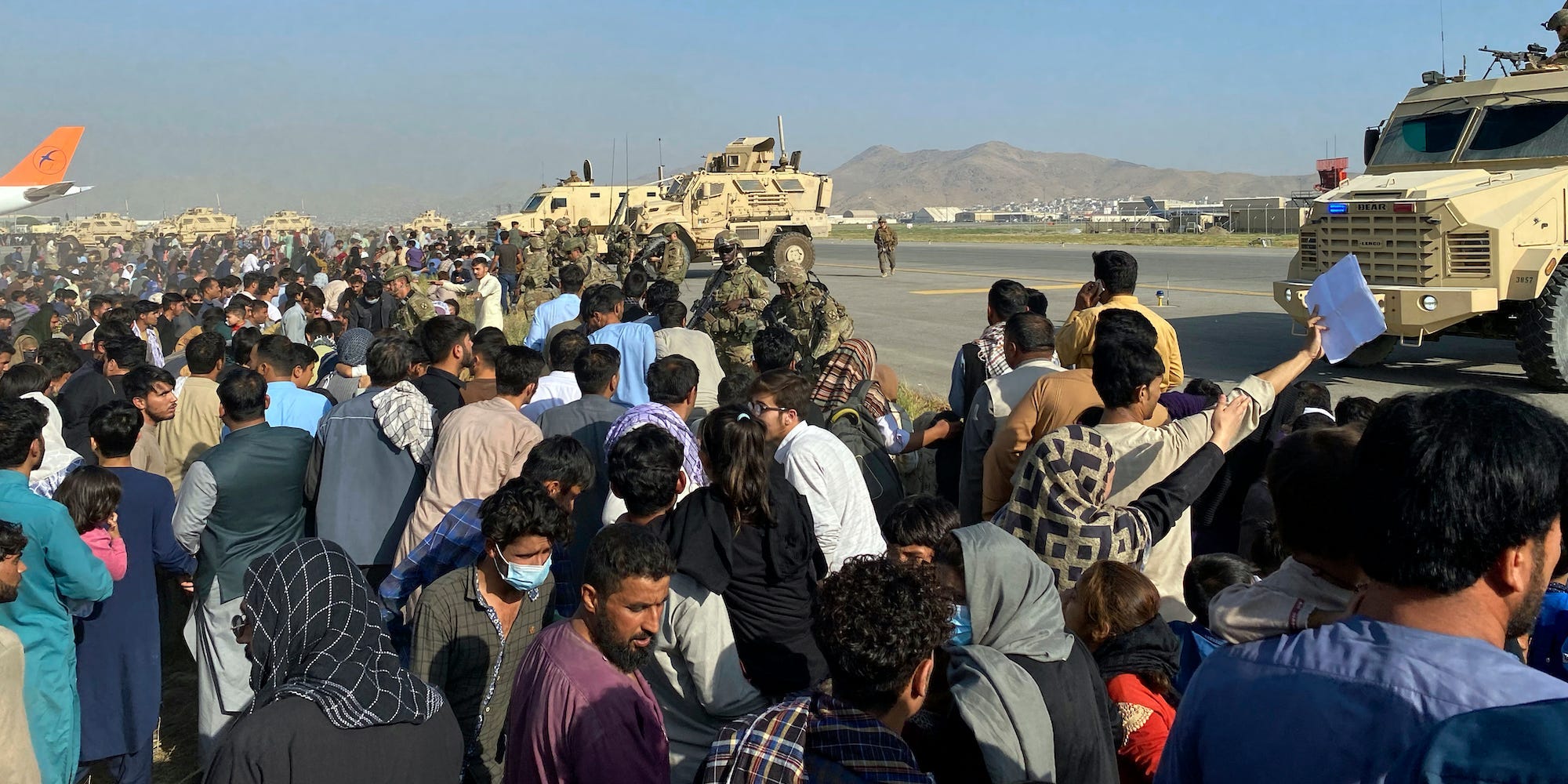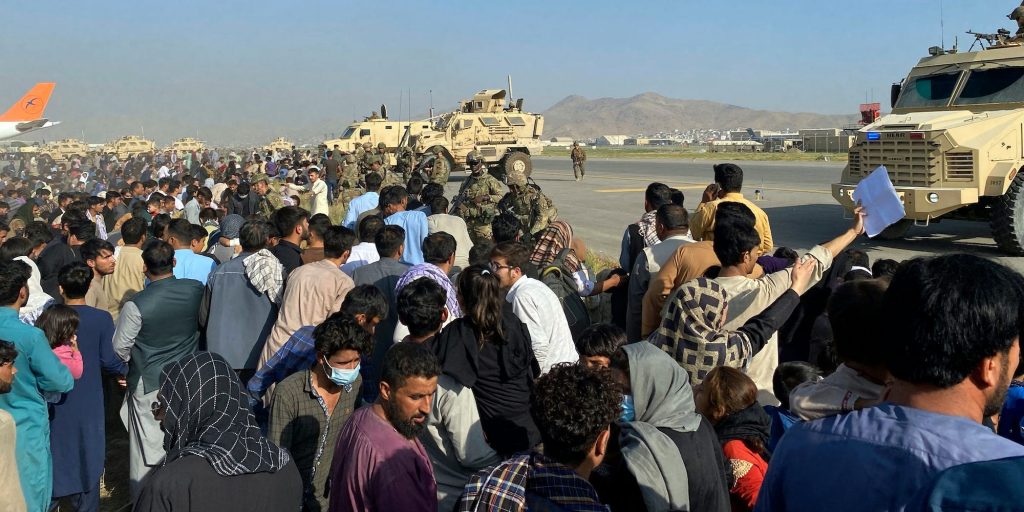
AP Photo/Shekib Rahmani
- The State Department thought it had six months to a year to evacuate Afghan US allies, Politico reported.
- The swifter-than-expected Taliban takeover has left tens of thousands of visa applicants in limbo.
- Lawmakers and advocates are raising the alarm about the safety of Afghan contractors and interpreters.
- See more stories on Insider's business page.
The US State Department didn't expedite efforts to evacuate Afghan contractors and interpreters to the US because officials believed they had six months to a year to process visas before Kabul fell, Politico reported on Tuesday.
The US-backed Afghan government collapsed not in a matter of months but in a matter of a weekend following the US' withdrawal from its 20-year presence in Afghanistan, allowing the Taliban to regain control over the country for the first time in nearly 20 years.
The swifter-than-expected fall of the government and Taliban takeover caught the Biden administration off guard and acutely endangers tens of thousands of Afghan Special Immigrant Visa (SIV) applicants who are now top targets of the Taliban for working with the US.
Those include Afghan military personnel, contractors, interpreters, and others who fought and worked alongside US forces in Afghanistan. These people and their families find themselves caught in bureaucratic red tape while waiting for visa applications to be approved. Some have already waited for years.
The Department of Defense revealed in a July meeting that it had no complete or centralized list of all the Afghan citizens who assisted the US military, Politico reported, leaving that work to nonprofit advocacy groups.
The State Department dismissed multiple outreach attempts from those organizations that assist SIV applicants and recipients until last Saturday, Politico said, with a congressional aide describing the department as "sitting on their hands" for months.
"We are actively working on every possible contingency to make sure that we can help those who have helped us," a State Department representative told Politico.
The State Department did not immediately respond to Insider's request for comment.
Biden said in a Monday afternoon speech on the withdrawal that there weren't more aggressive with evacuation efforts because "some of the Afghans did not want to leave earlier, still hopeful for their country."
But one ex-CIA analyst, Afghanistan war veteran, and current advocate for Afghan and Iraqi SIV recipients called foul on that reasoning and took the administration to task over the situation on Monday.
"I was appalled," Matt Zeller, co-founder of nonprofit group No One Left Behind, said in a Monday appearance on MSNBC's "Deadline: White House" after Biden's speech.
"There was such a profound bold-faced lie in that speech, the idea that we planned for every contingency," Zeller said. "I have been personally trying to tell this administration since it took office, I've been trying to tell our government for years that this was coming. We sent them plan after plan on how to evacuate these people. No one listened to us."
-Deadline White House (@DeadlineWH) August 16, 2021
"We had all the people and equipment in place to be able to save these people months ago, and we did nothing," he added. "I'm appalled that he thinks we only need to take 2,000 people. There's 86,000 people left behind in Afghanistan and we've identified all of them for the government."
While some Afghans in that category have been evacuated already, thousands more find themselves dealing with slow-moving bureaucracy in order to get the necessary paperwork to leave, leading to calls for action from members of Congress, Afghanistan war veterans, and advocates like Zeller.
"Damn the red tape, and get people on planes to safety right now. We can get folks out of hell and into Kuwait where we have the capacity to sort them out," Sen. Ben Sasse of Nebraska said in a Tuesday statement, calling the paperwork-induced delays "morally repugnant."
"I feel used," Afghanistan war veteran Joshua Rodriguez, who is trying to help an Afghan interpreter come to the US, told the Washington Post. "We were the tools to convince these interpreters to believe in and trust us, and veterans like me looked them in the eyes and said we had their backs. It's heartbreaking."

